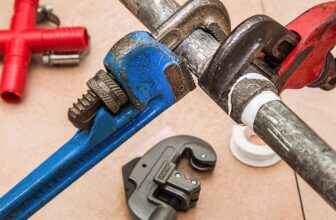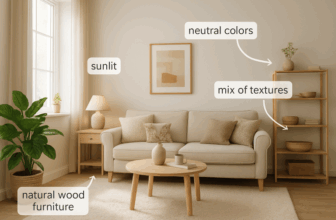
Leading Causes of Blocked Drains and How to Prevent Them
Why are my drains blocked all the time?
Blocked drains can be one of the most annoying home maintenance problems. One day everything’s running smoothly and the next minute you’re knee-deep in stagnant water while the shower floods your bathroom.
And guess what the worst part is…
Blocked drains are highly preventable. The most recent statistics show that burst or blocked pipes make up 46% of water damage insurance claims in Australia. That’s almost half of all water damage cases!
The good news is, if you know what causes blocked drains and how to prevent them, you can save yourself money on repairs and stress caused by water damage. When a blocked drain does occur, knowing how to fix your blocked drains fast will also help save time and money.
What are the top causes of blocked drains?
- Hair, Soap and Grease Build-Up
- Tree Root Invasion
- Foreign Objects and Flushing Mistakes
- Poor Pipe Installation
- Prevention Tips That Work
Hair, Soap and Grease Build-Up
Hair, soap and grease combine to create a sticky mess that’s the single biggest cause of most household blocked drains.
Hair combined with soap scum, toothpaste build-up, or other product residues in the shower can create a gross clog over time.
In the kitchen, the situation is even more serious.
Cooking oils and fats can easily go down the sink without being noticed by homeowners. However, these cool down and harden in the pipes, forming a layer on the insides of your pipes. This can then cause a blockage trapping other food particles and debris that shouldn’t be there in the first place.
Think about it every time you put grease down the sink, a layer is being added to the growing build-up that will only cause serious plumbing issues in the future.
How to prevent hair, soap and grease build-up?

Use a drain catcher for the shower and kitchen sink that will trap hair and debris before it goes down the drain. These cost a few dollars but can save hundreds of dollars in plumbing bills.
Cooking oil and grease is another big cause of blocked drains so always let it cool in a container before throwing it in the bin. Don’t be tempted to pour small amounts down the sink over time.
Run hot water down the kitchen sink every time it’s been used to flush away soap, oil and residue. This will also help to clear residue after washing dishes.
Tree Root Invasion
If you guessed that tree roots were a top cause of blocked drains, you are absolutely right.
Trees are always searching for water, and underground drainage pipes are an attractive target to thirsty roots. Once they locate a loose joint or crack, the roots begin to push their way into the pipe, searching for a water source.
As the roots expand and thicken, they create a mat that traps everything that flows through the pipe. This in time creates a large and expensive blockage.
The worst part about tree roots blocking drains is you will not know it’s happening until the blockage causes water to start backing up. By this time, the roots will have already caused extensive damage to the pipes.
Prevention tips that work
Plant trees at least 6 metres away from underground pipes. This gives roots less opportunity to grow into the drainage system.
If you have existing trees near your pipes, get regular CCTV inspections that will show root intrusion before a major problem occurs.
Consider pipe relining to stop roots growing into older damaged pipes in the future. Relining creates a barrier within the damaged pipe to prevent root ingress.
Foreign Objects and Flushing Mistakes
Think flushing toilets are only for solids and liquid? Think again!
Most wet wipes, cotton buds, dental floss and sanitary products don’t break down like toilet paper does in pipes.
These types of objects clump together and cause blockages that can impact many properties. In fact, the biggest fatbergs in sewer systems are made up of wet wipes and cooking oils and fats.
And it’s not only bathroom sinks that get blocked by incorrect flushing…
Kitchen sinks are often clogged when people wash down food scraps, coffee grounds or starchy foods such as pasta or rice. The food will expand when it gets wet and create stubborn blockages.
How to prevent foreign objects from blocking drains
Only flush toilet paper and human waste down the toilet. Bin everything else without exception.
Put sink strainers on kitchen and bathroom sinks that will catch food particles before they can go down the drain. Encourage kids to scrape plates into the compost bin or garbage can before washing.
Teach children early what can and can’t be flushed down the toilet. Children are often responsible for flushing toys and other foreign objects out of curiosity.
Poor Pipe Installation
Pipe installation is one of the least considered but most important aspects of the drainage system performance.
If the pipes are not installed at the correct gradient then waste won’t flow as it should. This means blockages become inevitable.
Pipes need to be installed at the correct slope to work properly. If the slope is too flat, waste will sit in the pipes. If the slope is too steep, water will flow away too quickly, not flushing solids along with it and leaving a build-up of debris that can cause a blockage.
Older homes can also have aging clay or cast iron pipes that are prone to cracking and breaking down over time. These damaged areas then act as a collection point for debris and tree root growth.
What can you do to help?
Hire a licensed plumber for any drainage work and they will understand the correct slope and installation standards required.
If you’re renovating an older property, replace old clay or cast iron pipes with modern PVC. This will prevent future problems and improve drainage.
Get a full drainage inspection if you are buying an older property. This will help you identify any issues before they become a major problem.
Prevention Tips That Work
Prevention is always better than the cure when it comes to blocked drains.
Maintenance is the secret weapon most people fail to utilise. Getting a drain inspection and clean once a year can identify small problems before they become costly emergencies.
Schedule professional drain cleaning every 12-18 months to help clear out build-up and keep the pipes flowing freely.
Pour down hot water mixed with vinegar down the drains monthly to clear soap scum and grease build-up. This simple trick will help keep your pipes clear between professional cleans.
Watch for warning signs like slow draining, gurgling sounds or unpleasant smells that indicate a developing blockage that should be attended to before it gets worse.
Install an overflow relief gully if you don’t already have one. This safety valve will prevent sewage from backing up into the house during blockages.
Additional prevention tips
Opt for biodegradable cleaning products that won’t leave chemical residue in the pipes. Harsh chemicals can eat away at the pipes over time and cause more problems than they solve.
Flush drains with hot water after using cleaning products or washing up. This will help to clear away any residue before it cools and sticks to the pipe walls.
Keep gutters and downpipes clear to avoid stormwater drainage issues. Blocked outdoor drains are just as bad as indoor drains.
Final thoughts
Blocked drains shouldn’t be a recurring nightmare in your home.
Hair, soap, cooking oil, grease, tree roots, foreign objects being flushed down toilets and sinks, or poor pipe installation are all factors that cause blocked drains. By being aware of the causes you can take steps to prevent them.
Prevention is always cheaper than emergency repairs and repointing blocked drains. Smart habits like using drain catchers for hair, not flushing non-biodegradable items and regular maintenance are the simple steps that will make a big difference.
Water damage claims make up 24% of home insurance claims in Australia. Many of these claims could be avoided by better blocked drain care and early intervention.
Don’t wait until water starts backing up into the house to take action. Do what you can now to protect your pipes and enjoy the stress-free life that comes with a properly maintained drainage system.




